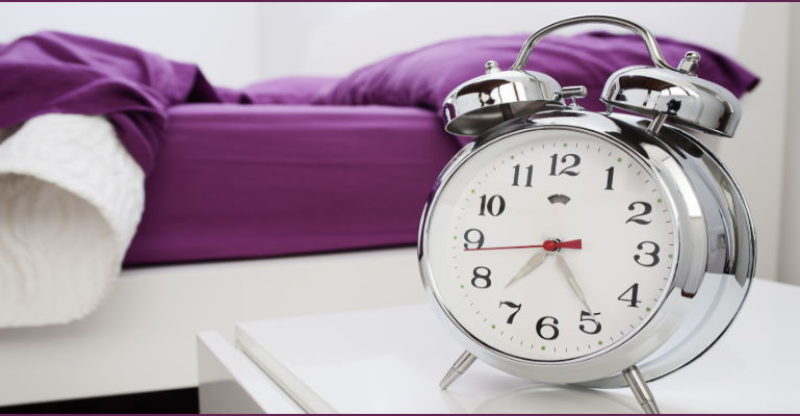Five Tips to Ensure a Good Night’s Sleep
Table Of Contents
- Introduction
- Go to Bed at the Same Time Each Night
- Make Sure Your Bedroom Is Set for Sleeping
- Avoid Using Electronic Devices and Watching TV
- Mind What You Eat Right Before Bed
- Get Regular Exercise
- Additional Help With Quality and Duration of Sleep
Introduction
Beyond eating right and regular exercise, consistently getting a good night’s sleep is one of the pillars of health and happiness. There are few things worse than having to drag yourself out of bed to go to work when you know you didn’t get enough sleep.
It negatively affects your entire day, so it’s critical to prevent this situation. The following are five tips to help you get the good sleep that you need to make the most of the following day and help preserve your long-term health.
Go to Bed at the Same Time Each Night
While ensuring you get a sufficient amount of sleep each evening is certainly important, your sleep routine is also very important. Researchers at Brigham and Women’s Hospital tracked the sleep habits of 61 students at Harvard.
They found that those who fell asleep and woke up at more random intervals had a lower GPA and had a harder time getting out of bed in the morning than those with a more set bedtime.
Most of us have fairly regular bedtimes during the workweek, but then any semblance of a regular schedule goes out the window over the weekend. You might sleep in for an extra hour or two on Saturday or Sunday morning.
In some cases, this will be to make up for not getting enough sleep during the workweek. This will then make it hard to get back to sleep at a decent hour when Sunday night rolls around to get back on schedule for work again. Try to maintain a set bedtime throughout the week.
Make Sure Your Bedroom Is Set for Sleeping
Is your bedroom conducive to getting a good night’s sleep or is it tailor-made for you to have trouble sleeping? Here are some things to check to see if anything in your room is preventing you from getting the sleep you need.
- Your Bed and Pillow
When you lay on your mattress, is it lumpy or are springs digging into your back? In this case, you definitely need a new mattress! In fact, you don’t want to wait for it to get to the “springs poking you in the back” point. If you wake up with an aching back, this should be a clue that you need a new mattress. If you wake up with an aching neck, this could mean a new pillow is needed. That, at least, is cheaper to try first to see if that solves any sleeping discomfort issue you’re having. It’s generally recommended that you change your mattress every 7 to 10 years. - Window Coverings
Make sure you have window coverings that are sufficiently thick to block out nearly all the light. This may not be a problem if you tend to go to bed when it’s dark out and rise when the sun does anyway. That being said, depending on your environment, there may be light from nearby streetlights or other lighting that you want to ensure doesn’t bother you. - Cool Down
Setting your thermostat a couple of degrees below where it’s normally kept before going to bed can be conducive to wanting to get comfy under the covers. Not only will a cooler room help you fall asleep but you won’t have to worry about being woken up from being hot or sweaty.
Avoid Using Electronic Devices and Watching TV
You should make sure to avoid looking at your phone, tablet or TV starting about an hour before going to bed. The blue light emitted by your phone or television has been shown to curb your body’s production of melatonin.
This is the hormone that helps us get to sleep. If you want to get into a ritual before you fall asleep, read a book by regular lamplight or take a soothing bath.
Mind What You Eat Right Before Bed
Many people already know to avoid foods high in carbohydrates right before sleeping since it’s turned right into fat. Foods with some carbohydrates can actually help you get to sleep, but make sure you don’t overindulge.
According to WebMD, foods rich in Tryptophan are a good idea. These include nuts, seeds, bananas, honey and eggs. Most importantly, avoid heavy meals since these get your digestive system going, which could mean… bathroom trips in the middle of the night.
Get Regular Exercise
Combined with eating a good diet, regular exercise is already recommended to help with maintaining a trim waistline and for overall health.
You probably already know the negative effect that a lack of sleep can have on you feeling energetic enough to get any exercise done.
There is evidence, however, that regular exercise can help you get more sleep and a better quality of sleep. It can take a few months for this to kick in, so start exercising now, and stick with it to see this benefit.
Additional Help With Quality and Duration of Sleep
Quality sleep cannot be underestimated in enabling you to live your life to the fullest. If you have trouble sleeping, don’t despair. The tips above should help you get your sleep life in order.
In the event that you need more information on this topic, please check out the sleep articles directory on this website. They offer the help you are looking for when you’re on a mission to eliminate those issues that are standing between you and a good night’s sleep.




